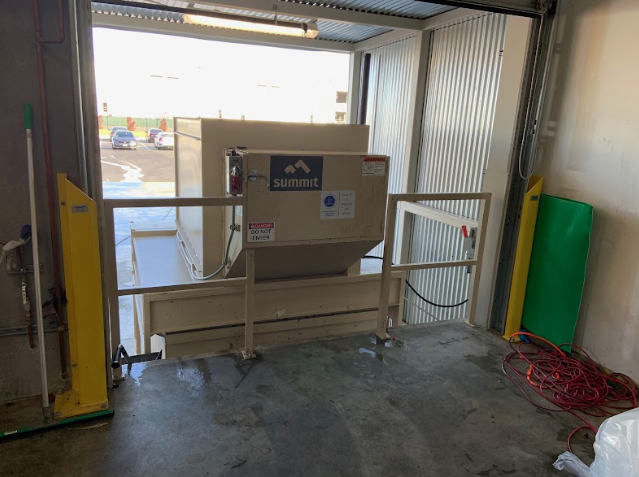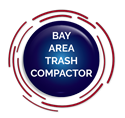
Industrial Compactor Troubleshooting: 5 Most Common Service Needs
If your business produces a lot of recyclables or waste, commercial trash compactors are definitely worth the investment. You’ll need fewer trips to the dump by crushing and compressing garbage – translating to lower collection and transportation costs. However, commercial compactors work hard in extreme environments and are subject to rough conditions. Their hydraulic systems, switches, controls, and electrical components are constantly tested. All of these factors can lead to commercial compactors needing repair or maintenance from time to time. Industrial compactor troubleshooting can be tricky, but here are the 5 most common service needs you may come across.
1. Unit Doesn’t Turn On
If this is the issue, the compactor won’t make any noise when you try to turn it on.
Possible Causes:
- Compactor not plugged in
- Emergency stop engaged
- Control panel issue
The first thing you should check is whether or not the unit is plugged in – it seems like a no-brainer, but it’s always worth checking the obvious first. If that’s all good, look at the emergency stop – it might have been activated. If those aren’t the issue, it could be a problem with the control panel, electrical wiring, or motor. Check the fuse on the control line voltage; if it’s blown, replace it. If the compactor still doesn’t turn on, call a professional for help.
2. Motor Starts, but Platen Does Not Move
If this issue comes up during industrial compactor troubleshooting, you’ll be able to tell because the motor will be running, but the compactor’s platen – the metal plate that does the actual compacting – won’t be moving.
Possible Causes:
- The motor is rotating in the wrong direction
- There is low or no hydraulic system pressure
- Dirt or foreign material has made its way into the hydraulic system
- There is no power to the directional valve coils
- A directional valve coil has gone bad
- The limit switch is bad or out of alignment
- The PLC unit has lost power, or the program is corrupt
To fix this issue, you’ll need to check the direction of the motor rotation. You can simply flip the wires on the motor if it’s reversed. Then, verify that the hydraulic oil is at the proper level and that the pressure relief valve reads 2000 psi. Clean the hydraulic hoses and change the hydraulic oil to remove dirt or foreign material. You’ll also want to check the directional valve coils and ensure they’re receiving power. If they’re not, you may need to replace them. If that doesn’t work, try realigning the limit switch or replacing it if necessary. Finally, if none of these solutions solve the problem, there could be an issue with the PLC unit – meaning you’ll need professional help.
3. Unit Makes Loud or Strange Noises
A commercial trash compactor is a piece of loud machinery to begin with. But if it starts making unusual noises or getting louder, that’s a sign that something is wrong.
Possible Causes:
- The pump or coupler has gone bad
- Waste is jammed in the compactor
- A hydraulic component has failed
- A rotor or bearing is locked
- A platen or door hinge is loose or damaged
- The motor bearings are going bad
If you notice your compactor making strange noises, you should first check for waste jams. If nothing is blocking the unit, then it’s time to take a closer listen. Is the noise coming from the pump or coupler?
Disconnect the motor from the pump and coupling, and let the motor run. If the noise subsides, replace the motor bearings. If not, disconnect the motor from the pump and coupling, and let the motor run. If the noise subsides, replace the coupler.
Trash compactor components can wear out over time and need to be replaced if they cause noise. If you hear a banging noise, it could be an issue with a hydraulic component or the motor bearings. And finally, if there’s a grinding noise, it’s likely coming from the rotor or bearings – both of which will need to be replaced if they’re causing the problem.
4. The Cycle Time is Too Long
If the trash compactor’s cycle time – the amount of time it takes to compact a load of waste – is longer than usual, that’s a sign that something is wrong.
Possible causes include:
- Restriction in hydraulic hoses
- The hydraulic pump is damaged
- The pump suction filter is plugged
- The cycle timer is set too high
- The door seals are damaged or missing
If the cycle time is too long, the first thing you should check is the hydraulic hoses for any restrictions. If there are none, then check the hydraulic pump for damage. If the pump appears damaged, it will need to be replaced.
Next, check the pump suction filter for any debris or buildup causing a restriction. If the filter is clean, the issue may be with the cycle timer being too high. Simply adjust the timer to a lower setting and see if that solves the problem.
If none of these solutions work, the door seals may be damaged or missing. Replacing the seals should fix the issue and restore the compactor to its standard cycle time.
5. Compactor Fails to Compact
There are a few possible reasons why a commercial trash compactor might fail to compact waste properly.
Possible causes include:
- Low or no hydraulic system pressure
- Bad or leaking hydraulic pump
- Bad or leaking hydraulic cylinder
- The chamber is too full
- The door seals are damaged or missing
If the compactor fails to compact, you should first check the hydraulic system pressure – it should be 2000 psi. If it’s low or nonexistent, then that’s likely the cause of the problem. Check for any leaks in the hydraulic pump or cylinder and replace them if necessary.
If the hydraulic system pressure is normal, then the issue may be that the chamber is too full. Simply empty the chamber and try again. If the problem persists, then it’s likely that the door seals are damaged or missing – in which case they will need to be replaced.
By following these steps, you should be able to fix most of the industrial compactor troubleshooting errors you come across. However, if the problem persists or you’re unsure of how to proceed, it’s always best to consult with a professional. They will be able to quickly identify the root cause of the problem and get your compactor up and running again in no time.
Related Reading: How Compactors and Balers Help Battle Global Warming
Waste management tools like Balers and Compactors help save money and the planet. Let us help you protect your investment for a lifetime.
Try our Preventative Maintenance Program or fill out a Service Request
